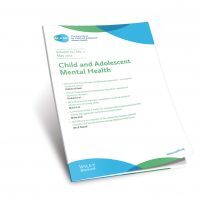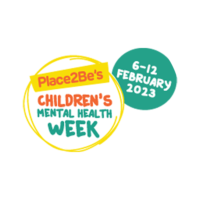Journal article
-

Commentary: Modeling the malleable mental health trajectory – a commentary on Oldehinkel and Ormel (2023)
Open Access paper from the JCPP – ‘In their Annual Research Review, Oldehinkel & Ormel argue that psychological and psychiatric researchers should not only compare groups but also focus on the within-person variability using repeated measurements in longitudinal studies to advance our understanding of emotional and behavioral problems. I argue adopting such within-person approaches might also change how we think about causality and might lead us to more successful intervention research.’ Henning Tiemeier
Read more -

Review: Crisis responses for children and young people – a systematic review of effectiveness, experiences and service organisation (CAMH-Crisis)
Open Access paper from the CAMH journal – ‘To examine the organisation of crisis services across education, health, social care and voluntary sectors; the experiences and perceptions of CYP, families and staff; the effectiveness of current approaches to care and the goals of crisis intervention.’ Deborah Edwards (pic) et al.
Read more -

Commentary: Something old, something new – can adding genomic data to family studies advance our understanding of the impact of nature and nurture on mental health? Commentary on McAdams et al. (2023)
Open Access paper from the JCPP – ‘In their annual research review, McAdams, Cheesman, and Ahmadzadeh (2023) provide a thorough overview of how the use of novel genetically informative approaches can increase our knowledge about the intergenerational transmission of psychopathology. Here we highlight what we see as the three main takeaways of McAdams et al.’s review and reflect on future directions.’ Jasmin Wertz and Stephanie J. Lewis
Read more -

Research Review: Delineating early developmental pathways to ADHD: Setting an international research agenda
Open Access paper from JCPP Advances – ‘We introduce the recently established Early ADHD Consortium, an international network of investigators engaged in prospective, longitudinal studies of risk for ADHD beginning early in life, conducted within a developmental framework, and which incorporate multimethod approaches. This network seeks to harmonize measures and methodological approaches to increase the potential for data sharing and subsequent impact.’ Meghan Miller (pic) et al.
Read more -

The adult outcome of childhood quasi-autism arising following extreme institutional deprivation
Open Access paper from the JCPP – ‘Here we provide the first detailed analysis of the adult outcomes of the group of institutionally deprived-then-adopted children identified as displaying quasi-autism.’ Maria Rodriguez-Perez et al.
Read more -

Nature based interventions in CAMHS wards can benefit patients and staff: helpful ideas from a qualitative practice-based paper
There is evidence that our surroundings matter, both psychologically and physically. Where we spend our time has an impact on how we feel. Much of what we have learnt about this comes from research in hospital settings.
Read more -

Childhood mental health difficulties mediate the long-term association between early-life adversity at age 3 and poorer cognitive functioning at ages 11 and 14
Open Access paper from the JCPP – ‘Here, we test the hypothesis that early-life adversity may lead to mental health challenges which in turn have adverse consequences for the development of cognitive abilities.’ Tochukwu Nweze (pic) et al.
Read more -

Annual Research Review: Prenatal opioid exposure – a two-generation approach to conceptualizing neurodevelopmental outcomes
Paper from the JCPP Special Issue: Annual Research Review 2023 – ‘Opioid use during pregnancy impacts the health and well-being of two generations: the pregnant person and the child. The factors that increase risk for opioid use in the adult, as well as those that perpetuate risk for the caregiver and child, oftentimes replicate across generations and may be more likely to affect child neurodevelopment than the opioid exposure itself. In this article, we review the prenatal opioid exposure literature with the perspective that this is not a singular event but an intergenerational cascade of events.’ Elisabeth Conradt (pic) et al.
Read more -

Age-related differences in social media use, online social support, and depressive symptoms in adolescents and emerging adults
Paper from the CAMH journal – ‘Using a cross-sectional sample of participants aged 14–22 years, we examined (a) linear and non-linear age-related changes in social media use and online social support and (b) age-related differences in the effects of social media use and online social support on depressive symptoms.’ Madison Politte-Corn et al.
Read more -

Let’s Connect – Creating Meaningful Connections to Support Mental Health
Now in its ninth year, Place2Be’s Children’s Mental Health Week 2023 focuses on the theme of ‘Let’s Connect’; encouraging the need for meaningful connections to support our mental health and wellbeing. With this in mind, do explore the learning opportunities available on our website, and do share with your networks and colleagues.
Read more